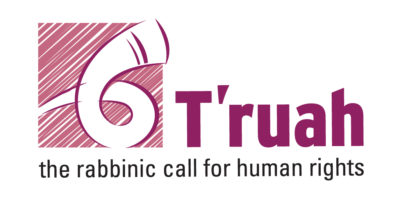NEW YORK – In response to the release of the Biden Administration’s National Strategy to Counter Antisemitism, T’ruah, a rabbinic human rights organization representing over 2,300 rabbis and cantors, welcomed the document. The organization acknowledged the plan as an important step toward eradicating identity-based hate.
Rabbi Jill Jacobs, CEO of T’ruah, said:
“T’ruah welcomes this historic national-level plan to fight antisemitism, which demonstrates the commitment of the administration to confronting this serious threat. We appreciate that the strategy was developed after careful consultation with many stakeholders, including T’ruah rabbis and staff.
“The strategy acknowledges that the fight against antisemitism is inextricably linked to the larger fight against white nationalism, violent extremism, rising authoritarianism, and hate in all its forms. Jews must work in coalition with other communities to fight bigotry.
“We are also glad to see the administration recognizes there are multiple definitions of antisemitism and focuses primarily on actions to counter antisemitism, rather than focusing on definitions. Definitions alone do not solve the problem of antisemitism. Codifying the International Holocaust Remembrance Alliance’s definition of antisemitism – or any group’s definition – would have been a hindrance to protecting free speech and actual efforts to respond to antisemitic attacks. We are glad the Biden Administration heard this concern.”
“Documents, plans, and strategies alone will not solve antisemitism, but this action signals that top policy officials are listening to impacted communities and taking steps to protect the dignity of all. We look forward to continuing to work with the White House to fight antisemitism and other forms of bigotry, so people of all backgrounds can live without fear.”
T’ruah: The Rabbinic Call for Human Rights mobilizes a network of more than 2,300 rabbis and cantors from all streams of Judaism that, together with the Jewish community, act on the Jewish imperative to respect and advance the human rights of all people. Grounded in Torah and our Jewish historical experience and guided by the Universal Declaration of Human Rights, we call upon Jews to assert Jewish values by raising our voices and taking concrete steps to protect and expand human rights in North America, Israel, and the occupied Palestinian territories.

